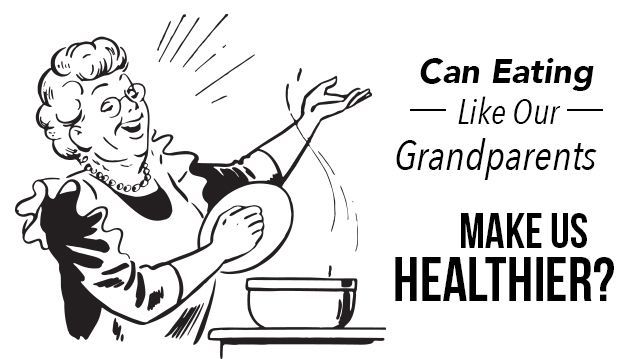
In today’s world, we have access to many different types of food, especially those of us who live in large, bustling cities. We can walk down a city block and find Mexican food, Chinese food, burgers and fries, to name just a few.
While some would argue that variety is the spice of life, there is also a lot to be said for sticking to your culinary roots.
Stephen Le, a biological anthropologist based in Canada, has recently written a book entitled 100 Million Years of Food: What Our Ancestors Ate and Why It Matters Today. In his book, Le states the importance of eating what our ancestors ate for optimal health.
Le writes that humans don’t, on average, consume more calories today than past generations. He adds that our metabolism rates are faster today, so that even if we do eat more calories, our bodies should be able to burn them. According to Le, this means that the food we are eating today, compared to the food of our ancestors, is the dividing factor.
In essence, Le’s point is that up until just a few generations ago, people only ate the foods that could be produced in their region. Each culture therefore adapted to eating that particular group of foods. He states that because we have access to so many different foods now, we are eating a much more varied diet, which is a far cry from the diet of our ancestors. As a result, our bodies may not be equipped to reap the benefits of all these foods.
The authors of a report titled “2013 Diabetes Atlas for the Region of Peel” (Ontario) wrote:
“Migration may influence the risk of diabetes through nutrition transition (i.e., a move from a diet rich in fruits and vegetables to a Western diet rich in fats, meat, processed foods and salt), changes in physical activity levels and stress.”
It is this “nutrition transition” that Le focuses on. He states that a “one size fits all” healthy diet does not exist, and that we’re better off eating the foods that our grandparents ate. If our grandparents ate meat and potatoes, for example, we should do the same. If our grandparents’ dinners consisted of fish and veggies, we would do well to follow suit.
Le also stresses that eating foods sourced close to home may be much better than seeking out the latest healthy food craze. He focuses on the importance of balanced, traditional meals. It’s certainly safe to say that most of our grandparents emphasized a balanced diet. They did not rely on processed foods; they cooked at home from scratch, with real ingredients. This is definitely a healthy way to eat.
However, if the diet of your heritage isn’t appealing to you, Le advises picking one traditional diet and sticking to it. While there is a lot of wisdom in eating like our grandparents (or great-grandparents depending on your age), a little variety isn’t necessarily a bad thing, especially if it includes nutritious, real foods. It is certainly better than the pitfalls of today’s Western diet, which relies on processed carbs and sugars. It is also better than eating out at restaurants, where food is often cooked in unhealthy oils, and contains sugar and processed additives (thanks to bottled sauces, etc.), which negatively affect the nutritional value of the food.
Le’s research brings up a lot of good points. It would be interesting to see a study that compares the benefits of a diet comprising a variety of homemade foods from different cultures — made with real ingredients and no processed additives — with the benefits of a single ancestral diet that’s also made with whole foods. I wonder if the traditional ancestral diet would in fact be considered healthier.
—Tanya Rakhmilevich
Tanya is a writer at The Alternative Daily with a passion for meditation, music, poetry, and overall creative and active living. She has a special interest in exploring traditional Eastern remedies and superfoods from around the globe, and enjoys spending time immersed in nature.
Sources:
http://www.treehugger.com/green-food/why-its-time-take-dietary-advice-your-grandmother.html
http://www.macleans.ca/society/health/eat-like-your-grandma-why-you-should-skip-the-kale-salad
https://www.peelregion.ca/health/resources/diabetes-atlas.htm

